For whatever reason, it is insanely tough for us women to say no to anything: a social invite, a business opportunity, a coffee date, an unsolicited request to pick our brains. And when we do, we feel like we have to caveat it with a million excuses: the kids have practice. The dog is going to the groomer. Your spouse is expecting you home for dinner. I say this from experience. I am this person.
At the risk of sounding sexist, let me say I’m sure that saying no is difficult for some men, too, but I don’t have personal experience in that realm; the majority of men in my life seem to have no problem using those two little letters. This post is my personal experience as a female entrepreneur in corporate America.
Why saying “no” is important
Last week, I listened to a great episode of the Ladyland podcast (available for free in your Podcast app) with two Nashville entrepreneurs I deeply respect: social media marketer (and host) Kim Baldwin and poet and teacher Ciona Rouse. They discussed when you’re peaking in your career, how opportunities arise and it becomes harder than ever to say no and why it’s important you learn to do so in order to save space for the projects and opportunities that challenge you. Kim also recommended Shonda Rhimes’ book Year of Yes, in which the TV producer and screenwriter chronicles her journey to simply responding to requests with “I’m sorry, no I’m not able to do that,” no further information needed.
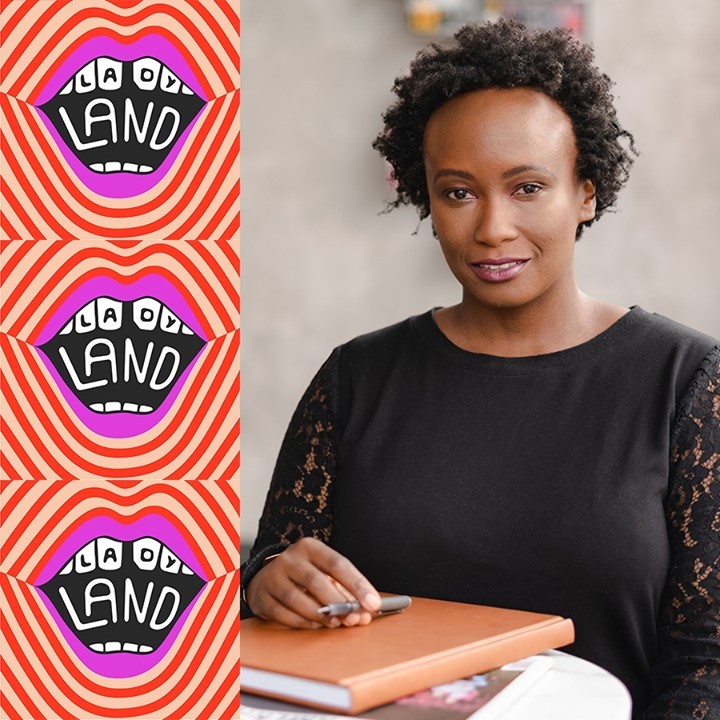
“Those two letters are powerful. The gift of the last year has been that we’ve had to say no.” —Ciona Rouse
“No” is a word I’ve slowly started to incorporate into my life more and more over the past five years. You reach a certain point in your career when you can spot what’s going to fill your creative cup and bring you joy and wealth, both emotionally and financially, or what’s going to simply become a burden (i.e. not worth your time and mental bandwidth), inevitably leading to regret.
I’ve had the extreme gift of watching and taking cues from successful entrepreneurs over the years who have helped me shape my own language. Take Ann Patchett, one of my favorite authors who owns a bookstore in Nashville and is probably the busiest person in literature, as a great example. She also has made time for me in the past to come to her house and have tea with her and her dog while I interviewed her. I took a big leap and asked her to keynote a media event. She wrote back two days later and said:
I appreciate your invitation to the conference, but it’s not for me. I have a whole host of reasons but the main one being my experience is ancient and non-applicable to the current market. Also, I try to avoid conferences whenever possible. [WRITER A] and [WRITER B] make a ton more sense. Good luck, and happy New Year.
Was I on the receiving end of that no offended? Of course not. I was sincerely flattered she even took the time to respond and obviously I completely understood her plate is always full (again: see busiest woman in literature).
Why we are afraid to say “no”
So why do I, in perpetual fear of the word no, have such a tough time doing the same when I’m on the other end of the question?

I have a few theories.
The media world is feast or famine
As a freelancer or creative entrepreneur, you’re always fearful of when the next paycheck will come. Saying no to that small job might mean there isn’t a paycheck for months. Every creative entrepreneur knows the concept of feast or famine intimately, and while I gratefully have never actually been in the first phase in my 13 years of being a freelancer, it’s still the fear that drives my every motivation.
You don’t want to lose out on future opportunities
We are afraid that should we say no to one opportunity with a particular company or client, they might not think of us in the future. I’ve also been afraid of this. But it’s all in how you craft the response. I’ve also said “no” to projects that were below my pay threshold, then lo and behold, those very clients came back to me months, sometimes years, later when their budgets allowed. This is why you should be gracious in any correspondence with a potential client, even if the initial offer may be one that offends you upon first read.
The dreaded “b” word
As women, we are afraid of coming off as bitches. It’s true, and I think of this in every email I write. I’m not sure why Scott can write emails devoid of emotion and exclamation points and be just fine, whereas I feel like I have to insert some personality to come off as friendly. See: all the exclamation points! (I kid; if you ever receive an email from me that has more than one exclamation point in a sentence, take that as a cry for help. I have been abducted. Send in reinforcements.)
Reasons you might want to say no
Here’s the thing: You don’t owe anybody a reason to protect your time. If I learned anything from my crowdsourcing about this topic, it’s that men for the most part simply respond with a “no” or “I can’t make that” whereas us women feel like we have to give a justification. Drill it into your brain that no excuse is needed.
Other than availability or work-life balance, you may have plenty of other reasons to say no to something: It’s a gig that doesn’t fit your ethics or interests; the compensation doesn’t match with your skillset; or you’re simply not interested on taking on new work or clients at the time. Again: You don’t have to give a reason, but in case that isn’t enough for you—trust me, it’s a building-block process—read on to how I decline work, social invites and brain-picking requests.
How I say no
Now that I’m nearing 40 and have been self-employed for almost half my life, saying “no” is coming easier and easier; like anything, it’s all in the language you use—words have power. Here are a few scenarios where the need to decline may arise and how, personally, I handle them.
Scenario: When someone asks you to use work of yours with no offer of compensation
In other words, they want you for free. How I respond: “Thank you so much for your interest in my work. What you’re asking is definitely in the scope of services we offer our clients. Our rate is typically [X] for [CLIENT REQUEST], or we can draw up a proposal to include this ask and more marketing assets that meet your needs. Just let us know!”
This immediately shuts down the inclination for someone to think they can use our work product with no payment in return and also leaves no room for follow-up awkwardness (because who can reasonably respond to that: “oh, I thought you just gave away your intellectual property with no compensation?”).
Typically, a response to my response will either be them ignoring it completely, or a “great! that works with the budget I had in mind,” or “I can’t afford that at the moment, but will let you know if something changes.” Either way, they now know what my time costs for future projects and can factor that into any future outreach.
A few weeks ago, I had another request by a major corporation to use our imagery for free—one in which the offender also cc’d a half-dozen photographers—and ended with the following:
I have also attached a document which will show you the images I am interested in showcasing. Each image that is approved will include a marketing caption which will include your photo credit. If you are unable to sign the agreement, unfortunately, we will not be able to include the images in the gallery – which I know will make the team there very sad. 🙁
SVV’s response was far more eloquent than what I would have written back: “While I appreciate the interest in our creative work I’ll echo [previous photographer’s] sentiment. A better approach would be to ask for a licensing agreement and scope out the exposure that a typical [COMPANY Y] website normally expects. This way, as photographers, we can estimate the value that the image holds for your client and price them accordingly. There isn’t a professional photographer in the world that has made a living from photo credits in a caption.”
Your work has value, and you should never, ever give that away for nothing in exchange; what that translates to (or what that’s worth) is personal and specific to the entrepreneur. Obviously, everyone has his/her own caveat to “never”—for example, we recently licensed imagery for free to a state park we love who is a nonprofit—so remember that there’s a gray area in everything, and this post is a mere road map for different ways you can navigate learning how to say “no.”
Scenario: You’re offered a project that you’d like to take on, but you’re already at capacity and the fee isn’t worth trying to shoehorn in the work to meet a tight deadline.
How I respond: “I would love to work with you on this, but I’m simply maxed out on bandwidth right now. My next availability for a project of this scope is [X DATES]. If there’s flexibility in timing or an opportunity to work with you later in the year/next year, please let me know.”
When I truly am stressed and have no more hours in the day to take on work at the moment but I really want to do the proposed project, I’ll see if there is flexibility in the project delivery dates.
If it’s a situation where you think you could charge a rush fee to try and squeeze the project into your existing work-life balance and the added compensation makes it worth sacrificing your free time, that’s another route you can take. “I’d love to take this on, but the timeline is ambitious given I’m already booked up with other client work. Would you be able to offer additional compensation for the quick turnaround?” You won’t know if you don’t ask, and if they can’t pay for your time, then it’s a project that probably wasn’t a good fit in the first place.
I also value my time a lot more than I did in the before times and have found a much better work-life balance that I really want to stick to; that in itself has made saying no to new work a whole lot easier.
The scenario: A project I’m not interested in falls into my inbox; I know I’d never take it in the future, but want to be gracious to the company for thinking of me.
How I respond: “Thank you so much for thinking of me for this opportunity, but it’s simply not the best fit. I wish you the best of luck in this project!”
Breezy, polite, doesn’t leave room for them trying to come back to me with a negotiation that is not worth their time or mine since I know I can’t be swayed. If it’s an agency reaching out that might have other clients you’d be interested in working with, you can always mention that. “I typically work on more consumer brand products, and I see you represent [BRAND Z]. Would you be willing to look at a proposal for collaboration?
The scenario: An acquaintance (read: not someone in my friend circle) asks for my time, be it a phone call, Zoom or in-person coffee.
How I respond: “I’m flattered you thought of me to help you solve this problem. I’ll send you my calendar of availability for consulting sessions and hope we can work something out!”
This has been a great way to weed out the brain-pickers: those who are actually dedicated to what they’re doing, and those who find me via Google and think they’ll shoot me a quick email and ask for the keys to the universe. If you’re a person who reads this blog, you’ve likely never done the above (and also, I love getting reader emails and am always happy to share advice or answer specific questions when I can do so). I’m truly grateful for all the loyal readers who have been with me for 14 years and reached out over the years and hired me as a consultant, photographer, writer, marketer or other.
But the classic brain-pickers, while the numbers have slimmed down, are always there, and while I would love to help everyone who reaches out as it pertains to tourism, media and marketing, that’s simply outside of my capabilities, so instead I now reserve a few consulting sessions a month for the one-timers who simply want help setting up their business or solving a work-related problem.
As a mural curator, I’ve also been inundated with requests lately asking for artist recommendations or a step-by-step of how to go about a mural installation, so my response is now: “I offer a lot of free resources on this blog regarding how to build your own public art program. If you require additional information or expertise, I’d be happy to set up a consulting session for you.”
The scenario: A press release, an opportunistic email from a PR with whom I don’t have a relationship, a spam invite sent to every person on Cision, an offer to “provide” content for my website.
How I respond: *the non-response*
As a journalist and blogger, I receive more than 1,000 emails a week that are spammy content farms asking to publish content on my blog, invites to affiliate programs and press releases that usually end with a question: “would you be interested in covering this/us hosting you?” By now, a good majority hit a Gmail filter I’ve set up that I empty at the end of each week, so they never even hit my main inbox. These are all the equivalent of spam and do not require my time or attention.
Remember: Do not feel bad not responding when it’s truly not a personalized invite or valid inquiry. Your time has value, and you owe strangers nothing.
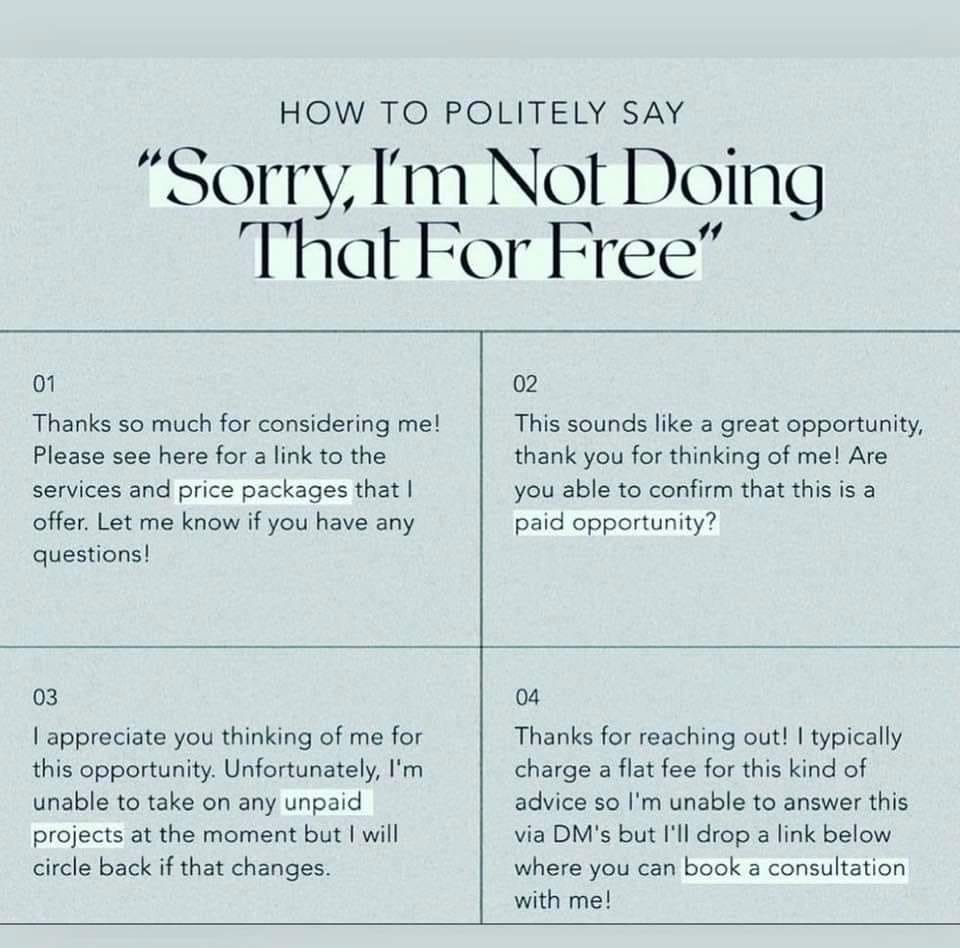
via @UltraLinx on Twitter
Another tactic to “no:” refer a colleague instead
Genuinely don’t have time for or interest in a project? Rather than simply saying no, consider referring a colleague instead, a la: “While I don’t have the bandwidth at the moment for this particular project, I have a colleague who I think would be a perfect fit who might be able to take this on. Would you like me to make an introduction?”
This tactic is one that I employ frequently. Of course, if it’s a low-paying gig that I’m saying no to for a reason (the budget) and I wouldn’t necessarily want to insult a colleague of my same caliber with that offer. Instead, I’ll go through the roster of greener or more intermediate writers who might jump at the chance to be associated with such a project and pass along their name to the assigning editor.
There is never ever ever a time when referring someone else for a project isn’t a good idea. It’s good karma, sure, but why would you not want to help out a friend or colleague in your same field? It’s hard enough being a freelancer; it’s even tougher when you look at everyone as an enemy or competition and not an ally.

How others say “no”
I crowdsourced on Instagram to see how others prefer to turn down an invitation and here are a few of your responses:
“Thanks for thinking of me, but I can’t make it.” — Becky
“*avoidance*” — Cassie
“I refer another to the gig.” — AG
“Thank you for thinking of me. I already have plans, but would ___ work instead?” — AKS
“I feel guilty, but use my kid a lot as an excuse for passing up invited.” — Hayley
“I’M IN A PHD PROGRAM.” — Adam
“I’m already booked, but thanks for thinking of me.” — Caroline
“Thank you so much, but that doesn’t work for my schedule right now!” — Sarah
“Sorry, the kids have a thing.” — Sandy
“Now that I’m a mother, I use my children as an excuse.” — Audrey
“I say ‘I’m unavailable’ or ‘can’t make it.’ If I give a reason, I’m honest: other plans, meetings, want to sit on my couch all day, etc.” — Ashley
“Unfortunately, I’m not available, but here’s my rate sheet for the future.” — Rachelle
“I’ve got a lot going on, so I’m not sure if I’m available, but please share more details and I’ll let you know if it’s possible. Then I follow up with a ‘sorry, not available’ if it doesn’t work for me.” — Lina
“Super busy right now.” — Hannah
“I can’t go, but thanks for thinking of me!” — Lyndi
“For work: thank you, but I don’t have room for that; however, I can make recommendations. For other: thank you, but I won’t be able to/can’t make it. Only people I like get the real reason why.” — Tabitha
“Not respond. I’m not proud of this.” — Kim
“I’m at capacity right now.” — Lauren
“‘Let me get back to you’ is a soft hint followed by ‘I don’t think I can make it’ shortly after.” — Stephanie
“Blame my kids.” — Sara Beth
“I’m sorry, I/we can’t make it/do it/accommodate it. No excuse. No reason.” — Elizabeth
“Yes 😩.” — Louise
“I say no but offer some advice or a recommendation to soften the blow.” — Elaine
Do you have any magical words or phrases you do when you want to decline a project or offer? Is saying no hard for you? How do you do it?
For more small business- and entrepreneur-related posts, start here:
- No, You Can’t Pick My Brain — And Here’s Why
- Want to Be More Hirable As an Influencer? Take These Tips to Heart
- 11 Lessons from 11 Years of Blogging
- Why I Don’t Work for Free—and You Shouldn’t Either
- So You Wanna Start a Blog? Here’s How
SAVE THIS ON PINTEREST FOR LATER
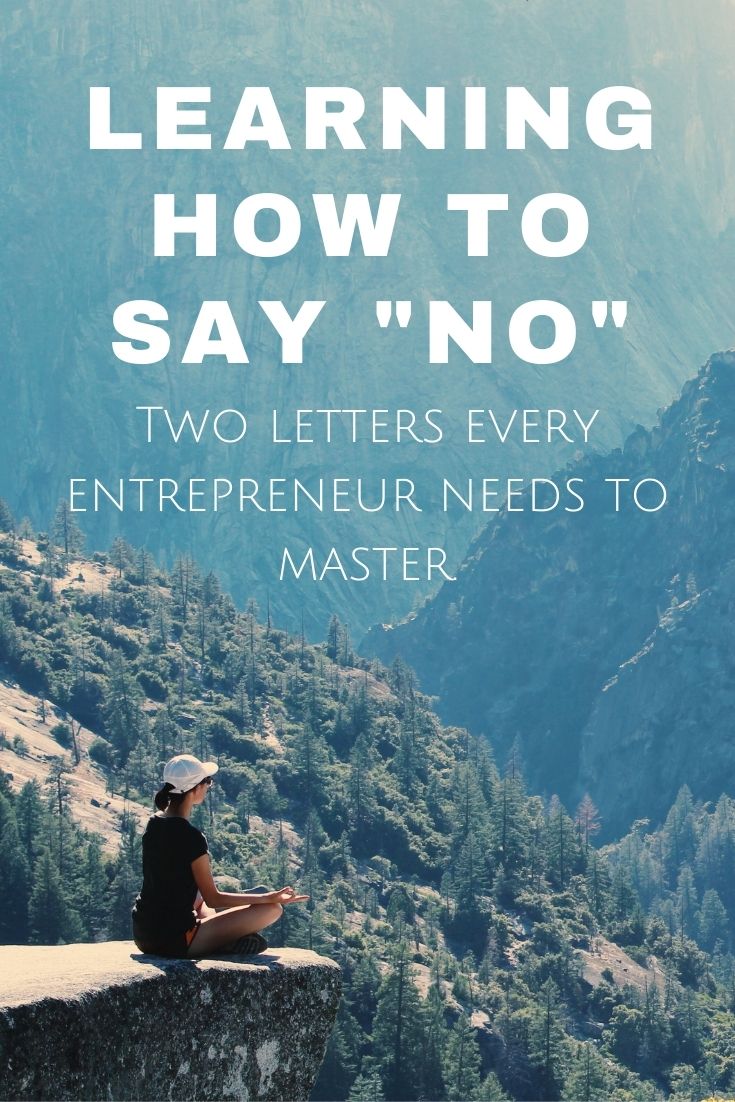
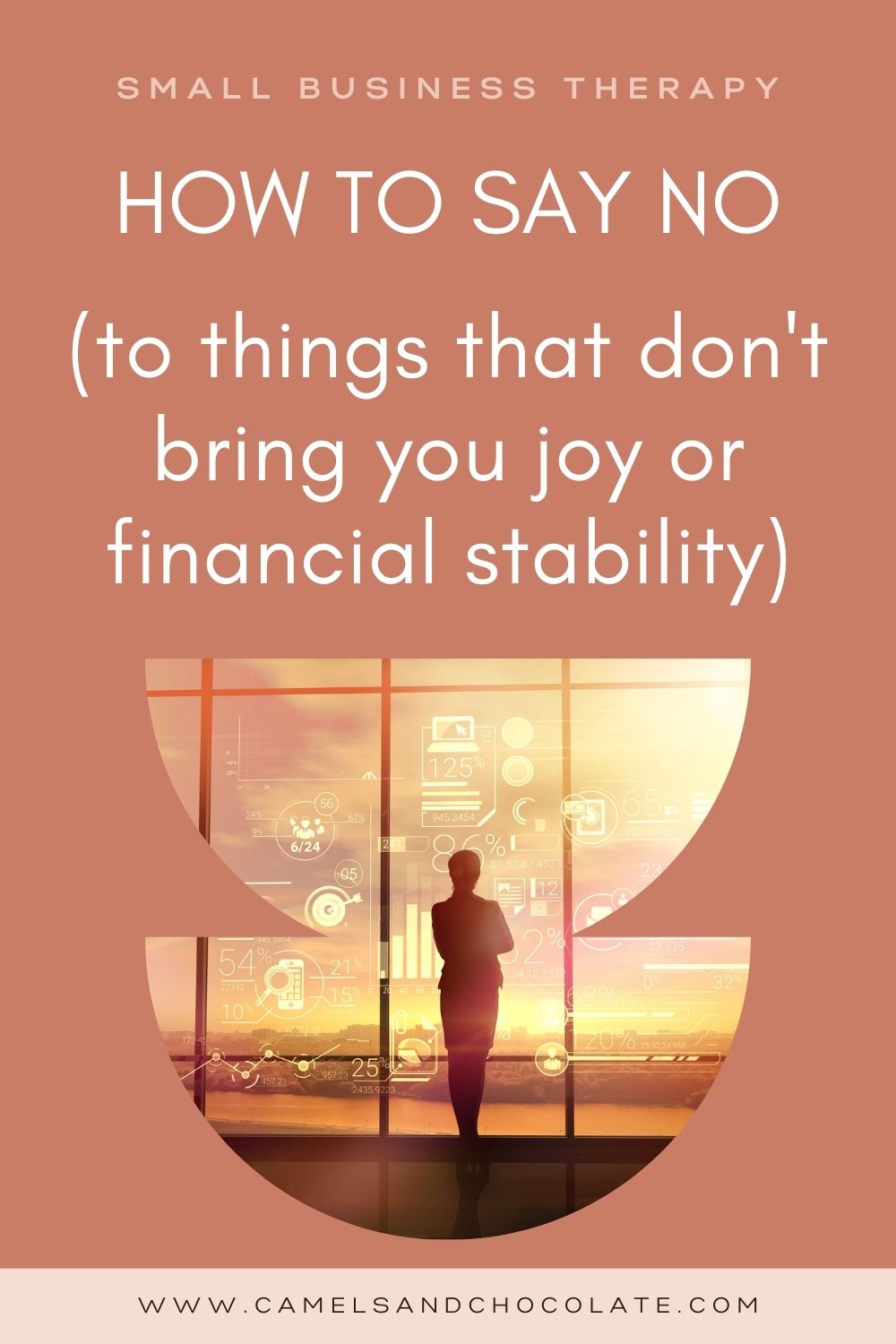
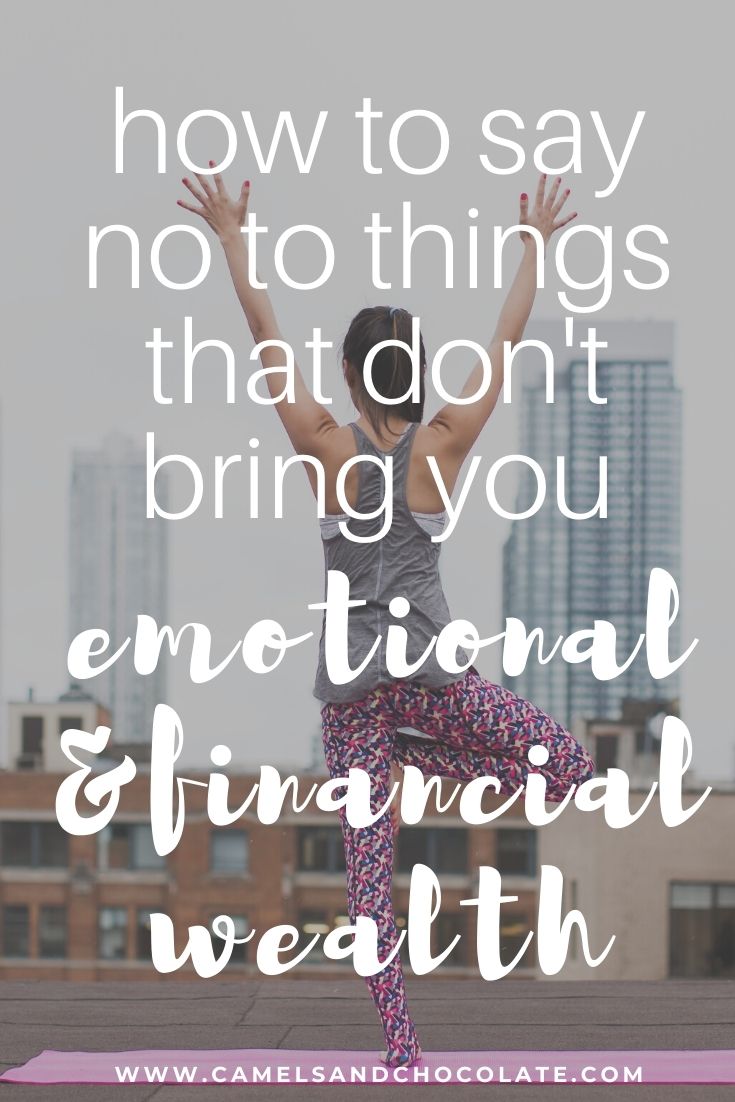


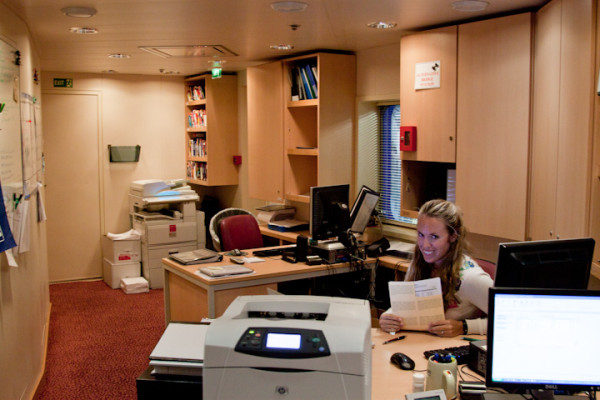











Thanks for this read, it confirms everything I am already doing – with having a full-time day job besides my other content creator activities, I have to be very selective and I often just say I am “prioritizing paid work” which works as well. Thanks for continuing to be a thought leader in this space!
That’s a great one, as well! And thank you for continuing to be supportive of everything we do! 🙂
This is so well-timed for my current struggles! I often feel guilty saying no or feel obligated in some way, and I need to learn to let it go. I’m definitely working on it, and I think this collection of responses is going to be super helpful.
No problem, Jess! Hope you are able to create the space you need. I’ve gotten much better at saying no, but I’m forever a work in progress.
I always feel bad when I say “no” but I have to fight to keep margin in my life too. You’d probably love to follow Nedra Tawwab on IG. She wrote a book about boundaries and it’s amazing what she has shared on IG.
I know! I still do at times even though I know I shouldn’t—why are we, the ones at the receiving end of unsolicited pitches for uncompensated labor (whether an actual gig or just access to our brains), the ones who feel guilty? It should be the other way around. This is what I tell myself to stave off any unwanted thoughts or feelings.
I don’t follow her but will now. Thanks, Tish!
I’ve been listening to Julia Louis-Dreyfus’ podcast Wiser than Me and more than one guest (ex. Jane Fonda and Carrol Burnett) both talk about how “No is a complete sentence” – but also how hard it is to learn this AND incorporate it into ones life!
Also +1 to Tish’s comment re-Nedra!